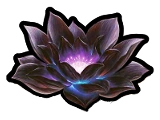Split cards are Magic cards with two card faces on the front side. A split card is literally "split" into two separate cards each with its own card name, art, mana cost, text, etc.
Description
In any zone except the stack, a split card has two sets of characteristics; while it's on the stack, it only has the characteristics of the half being played. This provides many interesting interactions with cards that create effects based on converted mana cost. For example, if Dark Confidant reveals a split card, you would lose life equal to the total converted mana cost of both sides. However, Venarian Glimmer needs only be set to the smaller converted mana cost, not the combined converted mana cost.
Split cards were introduced in the Invasion block, where each half was from a different color. [1] In Dissension each half was a multicolored card from a different guild. [2][3] Planar Chaos had split cards were introduced where both halves were the same color (all split cards in PC are red).
After the introduction of split cards, Unhinged featured Who/What/When/Where/Why which resembled a split card with five different effects.
Dragon's Maze introduced split cards with Fuse, an ability that lets you play both halves as one spell. [4]
Rules
From the Comprehensive Rules (April 12, 2024—Outlaws of Thunder Junction)
- 709. Split Cards
- 709.1. Split cards have two card faces on a single card. The back of a split card is the normal Magic card back.
- 709.2. Although split cards have two castable halves, each split card is only one card. For example, a player who has drawn or discarded a split card has drawn or discarded one card, not two.
- 709.3. A player chooses which half of a split card they are casting before putting it onto the stack.
- 709.3a Only the chosen half is evaluated to see if it can be cast. Only that half is considered to be put onto the stack.
- 709.3b While on the stack, only the characteristics of the half being cast exist. The other half’s characteristics are treated as though they didn’t exist.
- 709.3c An effect may create a copy of a split card and allow a player to cast the copy. That copy retains the characteristics of the two halves separated into the same two halves as the original card. (See rule 707.12.)
- 709.4. In every zone except the stack, the characteristics of a split card are those of its two halves combined. This is a change from previous rules.
- 709.4a Each split card has two names. If an effect instructs a player to choose a card name and the player wants to choose a split card’s name, the player must choose one of those names and not both. An object has the chosen name if one of its names is the chosen name.
- 709.4b The mana cost of a split card is the combined mana costs of its two halves. A split card’s colors and mana value are determined from its combined mana cost. An effect that refers specifically to the symbols in a split card’s mana cost sees the separate symbols rather than the whole mana cost.
Example: Assault//Battery’s mana cost is {3}{R}{G}. It’s a red and green card with a mana value of 5. If you cast Assault, the resulting spell is a red spell with a mana value of 1.
Example: Fire//Ice’s mana cost is {2}{U}{R}. It has the same mana cost as Steam Augury, but an effect such as that of Jegantha, the Wellspring sees that it contains the mana symbol {1} twice.
- 709.4c A split card has each card type specified on either of its halves and each ability in the text box of each half.
- 709.4d The characteristics of a fused split spell on the stack are also those of its two halves combined (see rule 702.102, “Fuse”).
Notable split cards
- Fire // Ice - Legacy threshold decks
- Research // Development - Vintage decks
References
- ↑ Mark Rosewater (February 11, 2002). "Split Decisions". magicthegathering.com. Wizards of the Coast.
- ↑ Mark Rosewater (April 17, 2006). "Split (Odds &) Ends". magicthegathering.com. Wizards of the Coast.
- ↑ Aaron Forsythe (April 28, 2006). "The Truth about Split Cards". magicthegathering.com. Wizards of the Coast.
- ↑ Mark Rosewater (April 15, 2013). "A Maze-ing Grace, Part 2". magicthegathering.com. Wizards of the Coast.
